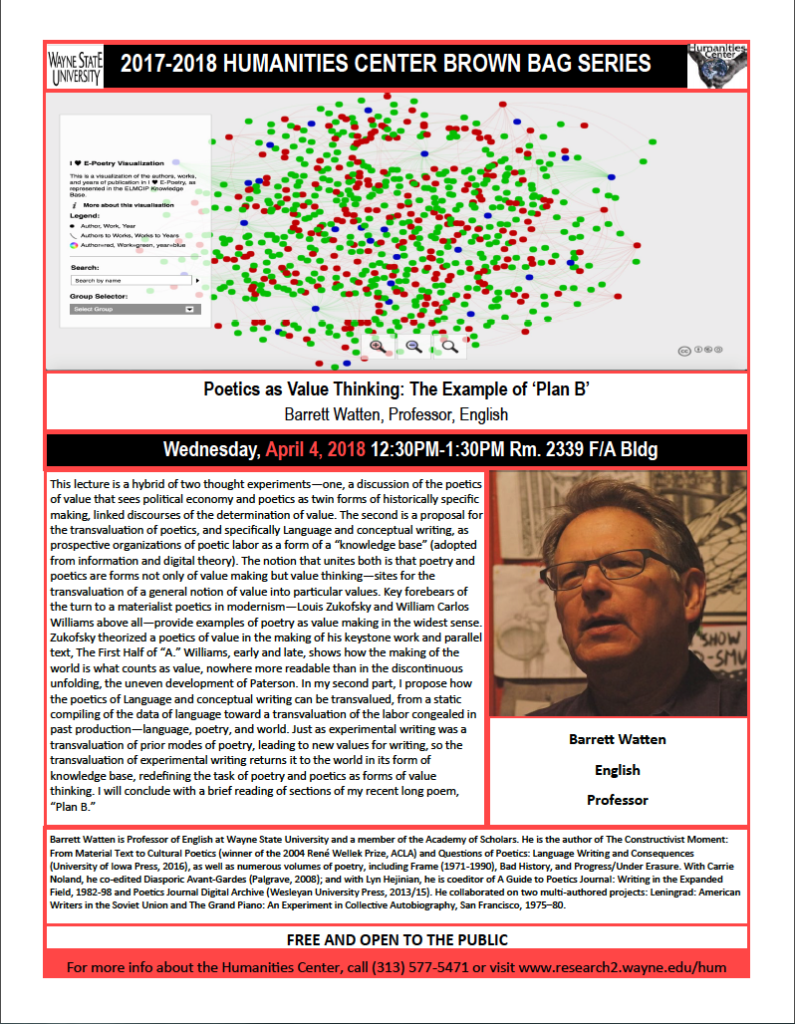Poetics as Value Thinking:
The Example of “Plan B”

Wednesday, 4 April 2018, 12:30–1:30 PM
2339 F/AB, Wayne State University
This lecture is a hybrid of two thought experiments—one, a discussion of the poetics of value that sees political economy and poetics as twin forms of historically specific making, linked discourses of the determination of value. The second is a proposal for the transvaluation of poetics, and specifically Language and conceptual writing, as prospective organizations of poetic labor as a form of a “knowledge base” (adopted from information and digital theory). … More











